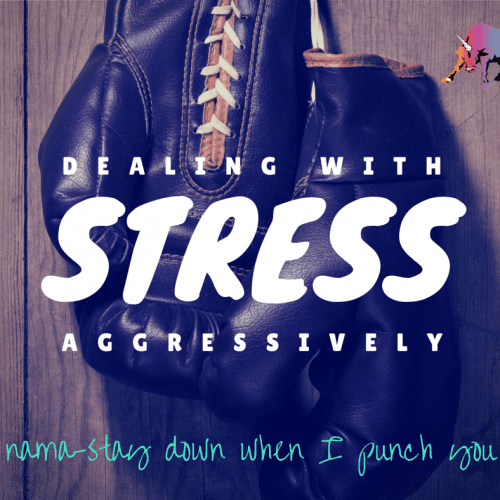
This article is more than ten years old. It originally ran on a now-defunct website called The Gloss, where Bullish got its start. This post was created entirely by humans, as AI didn’t exist back then (but also: why would you want to read something no one could be bothered to write?) For more recent posts, try here.
At the age of 25, I donated eggs to a gay man in California in exchange for $8,000.
In order to do this, I was put on a schedule of drugs and hormones, many of which I injected into my own stomach. During this whirlwind tour of human hormonal states, I got a pretty good idea of what it might be like to be a dude. And it was awesome, and involves some useful realizations about living with your lady-hormones.
Here’s what happened, in order:
• I had to take birth control pills for 10 days or so. They made me feel fat, stupid, and suicidal; my boyfriend at the time drove me all around Brooklyn in the middle of the night in search of rice pudding, the only food I could tolerate. We found some in a gas station in Fort Greene. Mmm, delicious gas station rice pudding!
• Then, I stopped the pills and felt better within a day; I started taking Lupron, which shuts down estrogen production. Egg donation is an overwhelming panoply of drugs and schedules — I had signed off on a medication regimen diligently explained by a nurse, I had been through injection lessons in which I plunged a syringe into a rubber thigh (kinky!), and I had just recently been obsessed with rice pudding and with wanting to die, so I didn’t really pay attention to what I was suddenly shooting up with. For some reason, I had to talk to a nurse from the California, and I became very angry about something very trivial, and actually yelled at her on the phone. She said, “Jennifer! Shut up! Your estrogen’s in the toilet, that’s why you’re angry.” I shut up.
• Over the next couple of days, though, I became the happiest I had ever been. Any hate I would normally have turned inwards, I turned outwards towards others. I walked around feeling calm, content. Confident. As though I had a protective bubble around me, and whatever silly things people on the outside did were just little noises and motions emanating from a dim, faraway television that was easily ignored. I became gruff; I barked at servicepeople. But even when I was rude to others, inside I was deeply content. (And, as I would later say in a one-woman show, “Suddenly, I could catch things and read maps!”)
• The boyfriend and I broke up. Gloriously, I didn’t care very much. Yet, having a reasonable theory of mind, I was aware that I normally would care very much. I thought to myself, “Wow, I have been poisoned by estrogen for a decade,” and “Can I keep taking this stuff?” It was easy to see how the calm, content, protected bubble could be a huge advantage in nearly every profession that doesn’t involve infant care.
• In the final stage of the egg donation process, I began injecting estrogen itself, at which point I became a walking sexist stereotype. Imagine a lady Jesus who, instead of taking on everyone’s sins, took on the PMS of all of the women in the world. That’s what happens when you put a healthy 25 year old woman on extra estrogen. In my real life, I cry maybe twice a year. Not often. After a week on estrogen, I wept (not just cried — wept!) on an airplane when served an undesirable variety of peanuts.

After the eggs were finally extracted from my swollen, overstimulated ovaries, I couldn’t let go of the idea that so much of what we consider our personalities — our true, inner selves — is really just hormones.
Once, as a teenager, I had a single day of PMS during which I raged, stomped around, and wanted so badly to punch things that I shouted at anyone I didn’t punch, which was everyone. (I was working in a Chinese buffet that day, so please enjoy the image of the single Caucasian employee stomping around, furious, while refilling trays of beef and broccoli). The rage-attack never happened again, but even as it was happening, I thought: Surely, there are men who walk around like this all the time. It would be nearly impossible for such men not to commit crimes. These men are doomed to prison by their own hormones. Or, as in the New York Magazine article I quoted in the first “Bullish” column, such men might be doomed to cause financial crises.
On other other hand, the NYT ran an article called The Estrogen Dilemma, about “perimenopausal depression” — in other words, some women feel as though they are losing their minds due to a lack of estrogen, and are helped tremendously by hormones. (Conversely, a friend’s mother once said that post-menopausal life was much easier, due to “no longer feeling a need to be loved.” Take that!)
So, what can you do? (Assuming you have an actual problem — I certainly don’t mean to imply that all women do. Just as some men have so much testosterone that they must exercise tremendous willpower to avoid committing assault, some women can’t, apparently, negotiate a raise without crying. Both of these are problems, the first substantially more serious than the second).

First, if you’re in your early twenties, just wait for your lady-systems to settle down. The same factors that cause us to be most fertile in the least useful years for being fertile (16-25 — thanks, nature!) also cause hormonal torment for some. When I was bodybuilding in college, I remember former Miss Fitness Olympia Monica Brant saying in a magazine that it’s easier to build muscle in your late twenties than in your early twenties because you have less estrogen.
Second, exercise. Exercise increases testosterone. This will very likely make you happier and more even-keeled, and, no, it will not make you look like a dude, even if you are already a big girl (in fact, teenage girls have been busted for shooting up with anabolic steroids as a way to stay thin — there’s a reason teenage boys can eat like wild beasts and not get fat). Also, from this article about weight training and testosterone:
Women enjoy sex more often when they have normal, healthy levels of testosterone…. Heightened sexual arousal in women generally occurs when testosterone binds with estrogen receptors, which directly influence her sex drive, mood, muscle and bone density, energy levels and metabolic processes that ignite sexual metabolism.
Third, if anyone ever tells you you are “too emotional,” point out that the speaker is biased in what emotions he’s thinking of. Anger is an emotion. Is he being overly emotional? Ben Barres, a professor of neurobiology who has transitioned from female to male, says:
It is just patently absurd to say women are more emotional than men. Men commit 25 times the murders; it’s shocking what the numbers are. And if anyone ever sees a woman with road rage, they should write it up and send it to a medical journal.
(The Ben Barres interview is from 2006, but it’s a real pick-me-up!)
And, for those who weep on cue? In the book Hardball for Women: Winning at the Game of Business, author Pat Heim, Ph.D., gives suggestions for those who can’t help crying in business. “Many men see crying as a conscious decision,” she explains,”but for most women, including myself, choice has nothing to do with it.” She nixes the idea of getting “cagey” and tipping your head back, because then the tears just run into your ears. She suggests trying to prevent crying by expressing anger instead (okay, great), or, if that doesn’t work, digging your fingernails into your wrist to cause pain (um…) or, alternately:
Announce The Cry: If you know an issue is likely to get to you, you can say to your boss: “Paul, I need to talk to you about yesterday’s announcement. I want you to know I care a great deal about this and that I might cry when we talk about it. Please pay no attention.” …Just bring your own tissues and make little ado of the tears. Treat them like the hiccups: an inevitable nuisance.
Or, you know, you could start your own damn company, or otherwise find a way to eschew the 9-to-5 lockup and work at home, where crying is allowed, and you can write blog posts regardless of your hormonal state of being.







